iii. Where I Get my Goods (texts, that is)
The places and online spaces that help me discover what to read or view

*Thursday ‘EXTRA’ posts are normally for paid subscribers. For the first three weeks of this publication, I will keep these as well as the comment sections open to all. Thank you for reading!
I’ve always loved consuming loads of texts: books, films, music, magazines, art at museums, backs of cereal boxes…whatever. So, somehow, I decided to make it part of my job to consume and think about texts. This is how I became a teacher and researcher. And it’s part of the reason I’m writing this newsletter (but also a bunch of other reasons that I’ll get to later).
So today, I’ll share a little bit about where I find all that stuff I consume. It’s only a little snapshot. And, I’m always looking for more suggestions, so please tell me how you find your goods.
Relatedly, the best texts I look at often come to me from people I know — friends, colleagues, students — or don’t know: the recs at the bookshop or from somebody on a metro who is laughing or crying while reading something advertised to us all or in a Medium comment thread. I love branching out from my favorite authors/genres/places and finding something new over the whole spectrum from lowbrow to highbrow (“Do These Cultural Categories Mean Anything Anymore?”). So now I hope that, in turn, some of these places I go could help you.
Films
I used to love going to the video store. All those possibilities…the magic art your could pop into a machine. The choice was important; it was a commitment to viewing in whole. What genre? Mood? Language?
Are you with me? (Or maybe you’re too young to know what I’m talking about.) As a teenager, simply going to the store was something to do. We would meet up there. Spend half an hour roaming and chatting until eventually choosing, paying, driving to someone’s home, preparing snacks, and - finally - viewing.
All these little actions seemed to elevate the importance of the film, or at least it’s impact, whether we liked or not. The films would be seen and remembered through a cultural practice. [Of course, there is also the joyful cultural practice of attending the cinema, albeit a more expensive one. I’ll discuss cultural spaces like movie theaters in a few weeks.]
Apparently, video rental shops are making a comeback in the US, even if they may not be practical. Is there one near you? Last year, there were articles on the World’s Last Blockbuster and still-surviving United Video in New Zealand. I’m not that surprised; isn’t it somewhat like the return of vinyl and record shops?
Well…I don’t have a video store near me in Basel, as far as I know. But…I’ve still got a drawer of DVDs. Though I rarely use them, I like the idea of something physical, a collection of some favorite and quirky films to watch again or lend to someone else who still owns a DVD player.
Many of these films were originally purchased as research during my PhD. I couldn’t find them in our film library or on digital platforms at the time (circa early twenty-tens); the fastest way to get my hands on them for research was to buy them myself. Admittedly, despite culling the selection during three international moves in the last six years, my physical film library is growing again. (To my brother-in-law, if you’re reading: we helped clean out some things at ‘home’…but don’t worry, I saved the best DVDs! Now I have a second drawer to choose from!)
[Aside: I’m not talking about the debate of digital vs film methods of moving picture creation. That’s a whole different thing, and more closely linked to the vinyl vs digital music debate.]
So if you’re in the neighborhood, please swing by for a borrow. But yeah, I also use streaming platforms. The main ones. But another that I discovered back when it was just a little baby platform showing obscure Asian cinema I was trying to get my hands on is called MUBI. I’m sure a lot of you know it.
I love MUBI! Sometimes I go on there to find something I’ve read about or remember from the past. Other times, I find something in their user-made lists or on the daily highlights, often linked to festivals. For example, I just clicked on the the site now to get the link for y’all and it is featuring Bubble Bath (Hungary, 1979). The Guardian reviews it as: “Hungary’s third ever full-length animated feature is a true curio and a work of minor genius: a gallopingly neurotic modernist-psychedelic musical from 1979 that bubbles and pulsates with anxieties about modernity.” Thank you, MUBI; it is now in my queue.
It has loads of constantly changing selections of things that are old, new, indie, ‘foreign’, shorts, documentaries. Check it out.
Jump Cut is also a great place to read about cinema. It’s an open source journal featuring many of the best scholars in the field. Unfortunately, I don’t think they have a newsletter, so you just have to bookmark/Toby it. My two favorite podcasts on film are Kermode & Mayo’s Take and Films To Be Buried With (Brett Goldstein, of Ted Lasso). Here’s one where Mark Kermode talks with Brett Goldstein:
Books
Physical books are also things that have traveled with me over the years, though they have been much less culled than the movie collection. We live in an apartment, so any extra wall space is used for IKEA bookshelves. Luckily, my husband is also a book lover because they took up probably half the weight of our last shipment from the UK to Switzerland. We’ve just found a spot to put another bookshelf!
And we picked up this little gem below off the street for our son. You see, it’s expensive to throw things away here, so people often leave things out with a ‘gratis’ (free) sign. Nice, right?
Much of my reading comes from our bookshelves. I also love to revisit old books. Some of the books are there…waiting to be read one day, taunting me with their truths. I like this, too; like Umberto Eco’s idea of the anti-library.
But the books come from somewhere. I try to avoid Amazon! But even Book Depository that ships everywhere is owned by them, so sometimes, it happens, especially during a pandemic lockdown. If you haven’t heard of Bookshop.org (or UK version), it’s a great site that lets you buy online from local bookshops in the UK or US. I also occasionally purchase from The Guardian Bookshop when I read one of their reviews as a way to support the newspaper.
Of course, many of you have your local bookshops you love and often these places will order any books not on their shelves. It’s a great way to support places we enjoy browsing, discovering, and even socializing. These are all things maybe we appreciate more after being shut out during the pandemic. I’m one of those creatures who loves the smell and feel of these books; bibliosmia - the smell of a good book.
There are not many book stores here, due to the high cost of rent I guess, and the ones we do have mainly sell German books. Ich lerne Deutsch aber ich spreche nur ein bisschen Deutsch. (Was that right?) There is a nice bookstore in St. Louis (encrage librarie), just over the border in France, that I pop into sometimes after purchasing a large selection of cheeses and croissants from the grocery store.
When I visit friends in New York, I always go to Books Are Magic! in Cobble Hill (wall art pictured above), which has a lot of great staff recs. In London, near my in-laws, it’s Daunt Books, originally a travel bookstore but now much more. I also go there for the recs as well as the beautiful space:
In Paris, I often visit L’Ecume des Pages in St. Germain des Prés, conveniently near many writer cafes. And when I’m home-home in Lexington, Massachusetts, I go the nearby Concord Bookshop, with a great selection of local and children’s books in addition to anything else you might expect.
Academic articles
I recently returned to the physical space of the library for research also in search of databases. In Basel, the university libraries are for everyone. I am not formally connected to the institution but can check out books and conduct online research onsite. I also began looking at paper-copies of academic journals. This is something I really love to do. It’s the way that unexpected delights come to us.
Additionally, I recently discovered that my undergraduate university, Bowdoin College, gives free access to JSTOR for alumni. I was so excited to see this that I tweeted about it, and they retweeted their pleasure in my excitement.

If you’re an independent researcher, access to these databases can be expensive. Often a local library will allow onsite access at least, and you may be able to find an inexpensive alumni offering if you attended a university.
However, there are also increasingly more Open Access spaces - such as CORE and OpenDOAR. Sometimes journals choose to go ‘open access’ and other times researchers share their work directly. Here is another list of open source databases, specifically for students, and another list of open journals. If you haven’t had enough, this is a good composite, too! Probably your library has their own advice as well. But the joy of these resources is that it doesn’t matter if your library subscribes to them or not.
Newspapers and magazines
I also still love reading the newspaper or magazines in paper when it’s possible and when I have the time. The FT Weekend Life & Arts is a great treat; I am always bombarded by new ideas and texts to devour in addition to an imaginary FT Lunch with a fascinating person-to-know. This past week, I read about Serena Williams, fantasy football, Weedtown NYC, Oluwole Omofemi’s portrat of the queen, and a Mondrian exhibit that happens to be in my city. The House & Home section also has a great column from Luke Edward Hall and the magazine (editor Jo Ellison) always starts with an interview that I go to first. The whole newspaper is peppered with wonderful observances from Simon Kuper.
Online is where I do most of my article reading though. My journalist friend Darren started me on the Quartz Daily Brief ages ago. It’s a great way to get a quick overview of news and ideas in the morning, not only from Quartz but also from international news sources, sometimes even in different languages. More than current events, the daily email (also viewable on the app or website) offer ethical debates, tech finds, random cool stuff from the art world, and more. I used to subscribe to Quartz but it’s now free, with a patron option.
The other main newspapers I look at and keep as apps on my phone (though I prefer the website view) are Le Monde, The New York Times (in paper at my parents’ house), and The Guardian. The first two I subscribe to and the last, I support through its bookshop and lecture series. All of these sources also have fantastic arts and culture sections as well. They are obviously quite well known! But I mention them because I find it worth my time browsing when I have a chance.
Other things I get in my inbox or on apps are: The New Yorker, Vogue (the writing used to be better, but it’s still a fascinating magazine - such as the story below if you click on it), (Breakfast with) ARTnews, London Review of Books, Philosophie magazine, The Believer, and Literary Hub.
And then I also get a bunch of eclectic newsletters. You can see them all on The Matterhorn homepage.
Besides this, there’s Spotify, Instagram, local museums…places of discovery. It can all get rather overwhelming unless I remind myself to slow down and enjoy it, to read less but read better (as discussed last week).
I wish I had more time to just sit with my books and wander through the pages…more time to peruse the online media I love…to find great youtubers, new bands, and creative projects.
I’ve designed my life so I do have more time to do that; it’s part of my process for writing the Tuesday posts of this newsletter. And because I work from home, these can quickly turn into pleasurable breaks if I find something that speaks to me at that moment. Sometimes it turns into research for a future article; other times it is something completely for itself.
I hope that some of what I cultivate for the Tuesday topics help you discover something new, or rediscover a text in a different light. I also hope the discussion threads lead to more recommendations for us all. One of my goals is to make texts more alive and part of ongoing conversations about ideas we all have, trying to make sense of our lives or the world, or just trying to find something beautiful, whether in its aesthetic or its realness.
Thanks for being a paid subscriber to The Matterhorn! Paid subscribers are welcome to leave comments, including questions and suggestions. Let me know what you’re interested in to help this newsletter evolve.
Kathleen Waller is a novelist with a PhD in Comparative Literature. She previously taught literature, cultural studies, art, ethics, and epistemology to high school and university students for twenty years. For more information: kathleenwaller.com




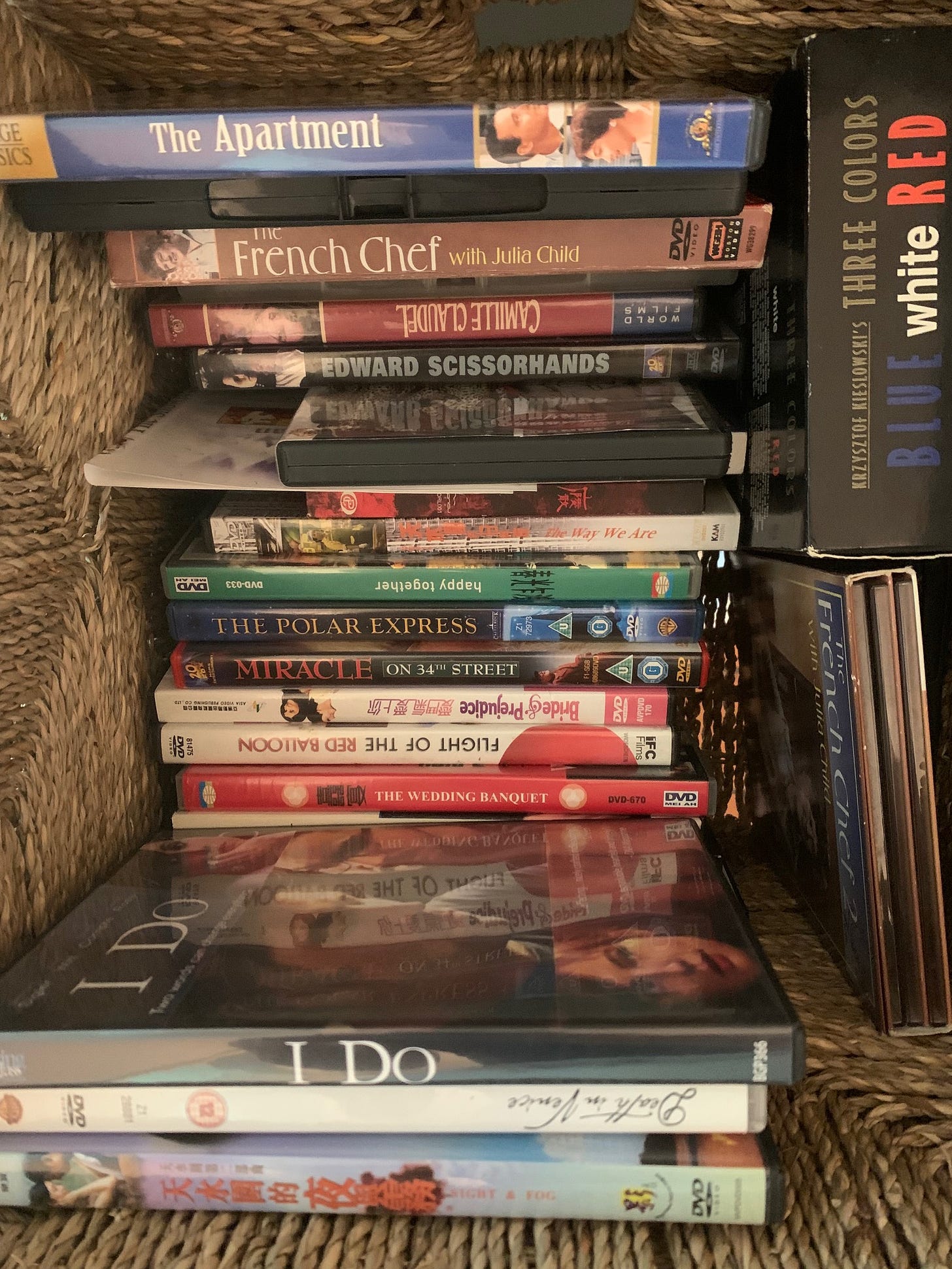
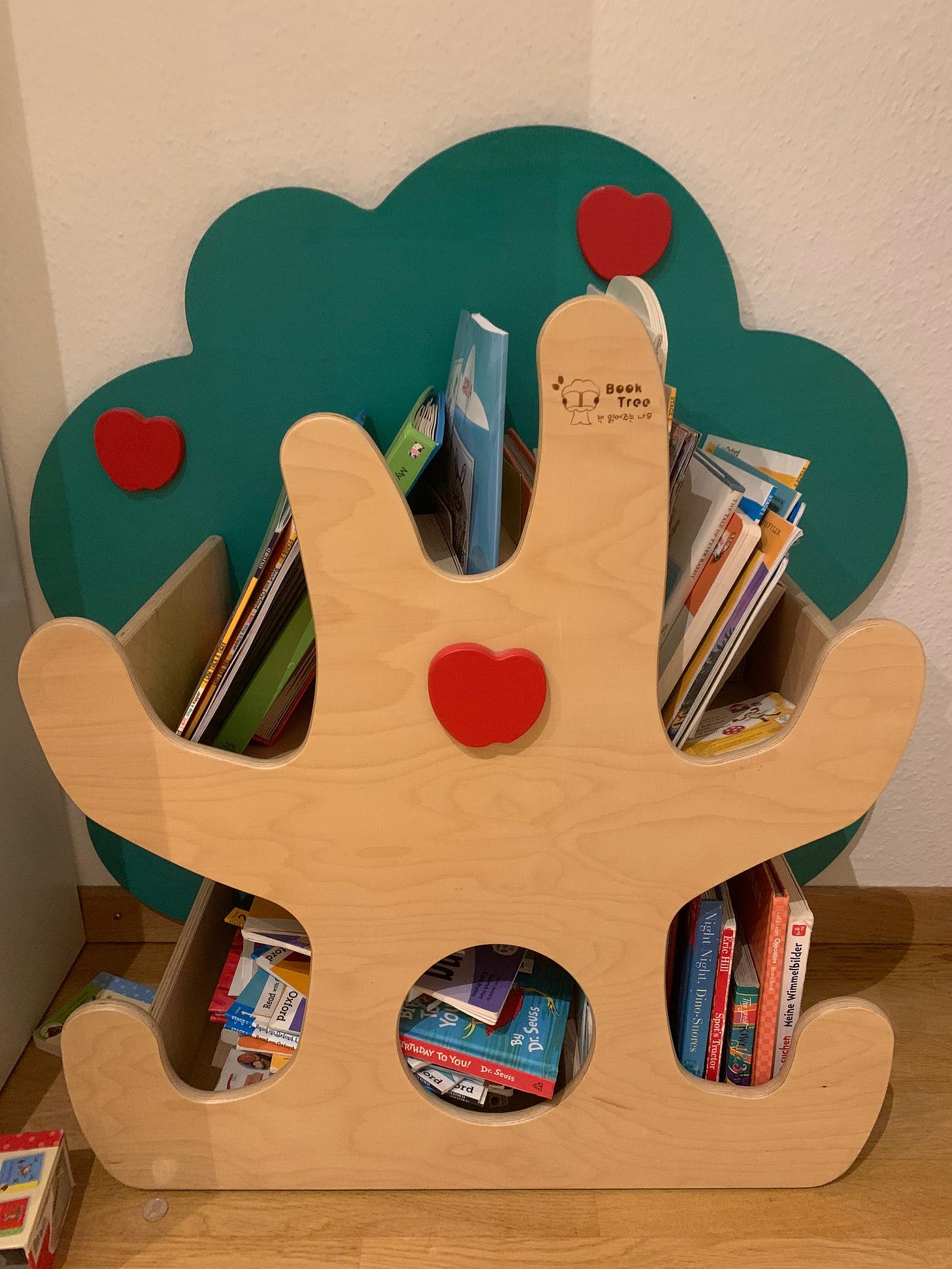
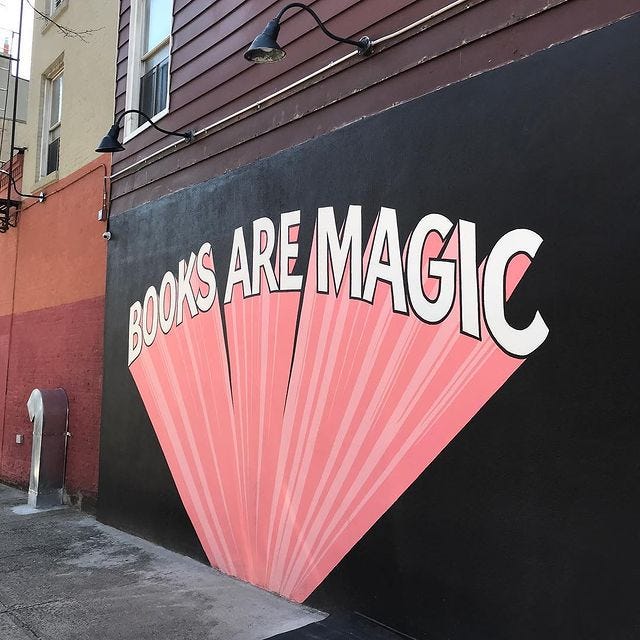
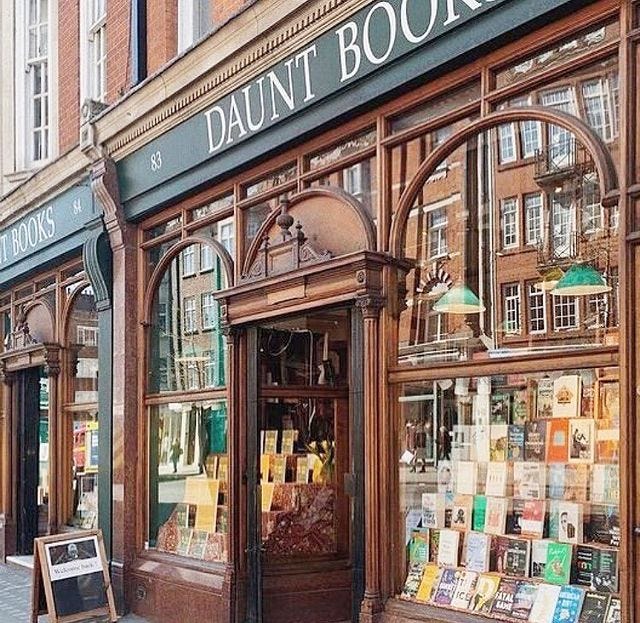
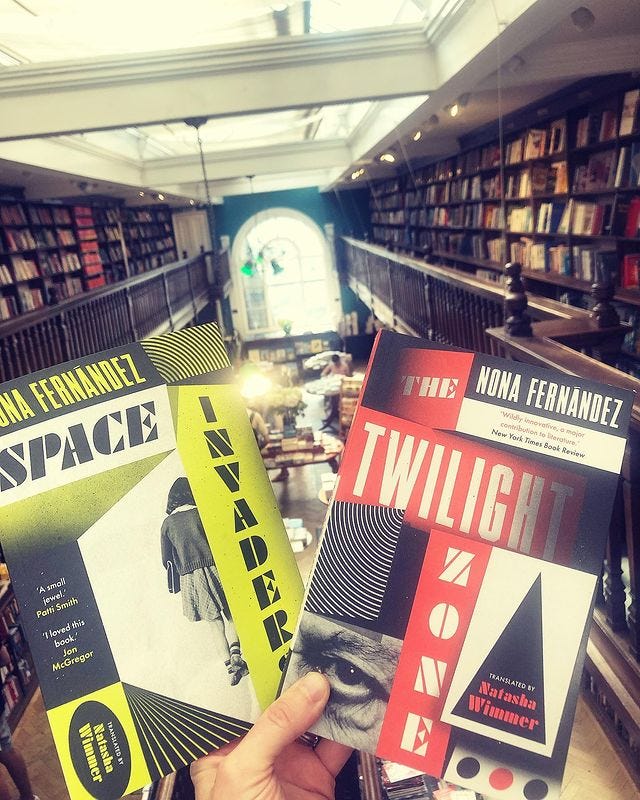
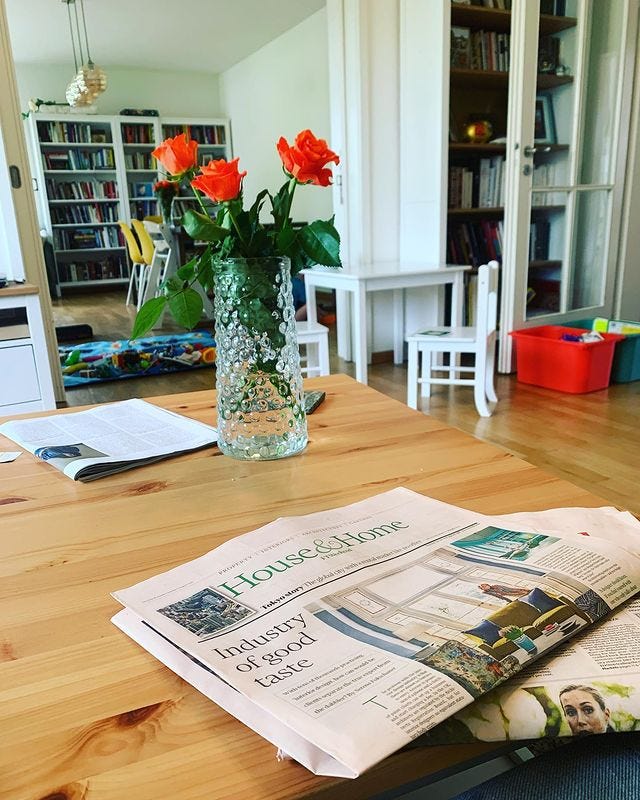


"The best texts I look at often come to me from people I know — friends, colleagues, students — or don’t know: the recs at the bookshop or from somebody on a metro who is laughing or crying while reading something."
If you live in Japan, just forget it. The Japanese have a weird sense of privacy. For instance, many will put a photo of their cat or dog or a bunch of flowers on their FB page, anything but their face.
As for reading in public, they hide the book cover under a wraparound sheet of paper provided by the bookstore so other people can't see what they are reading. What's wrong with these people?
I wonder if in Hong Kong they do the same.
Great post, Kathleen! Oh, how I miss our local Blockbusters...my youngest child still has their membership card as they refused to part with their memories of Saturday afternoon visits to the video store. I am also trying to buy books as ethically as possible and will try the bookshop.org you suggest, though I tend to borrow most books from my local community library, the most wonderful of resources. Having just finished an MA at my local university, I have also discovered that they allow alumni to use their libraries for research and hold many great journals, hooray! : )